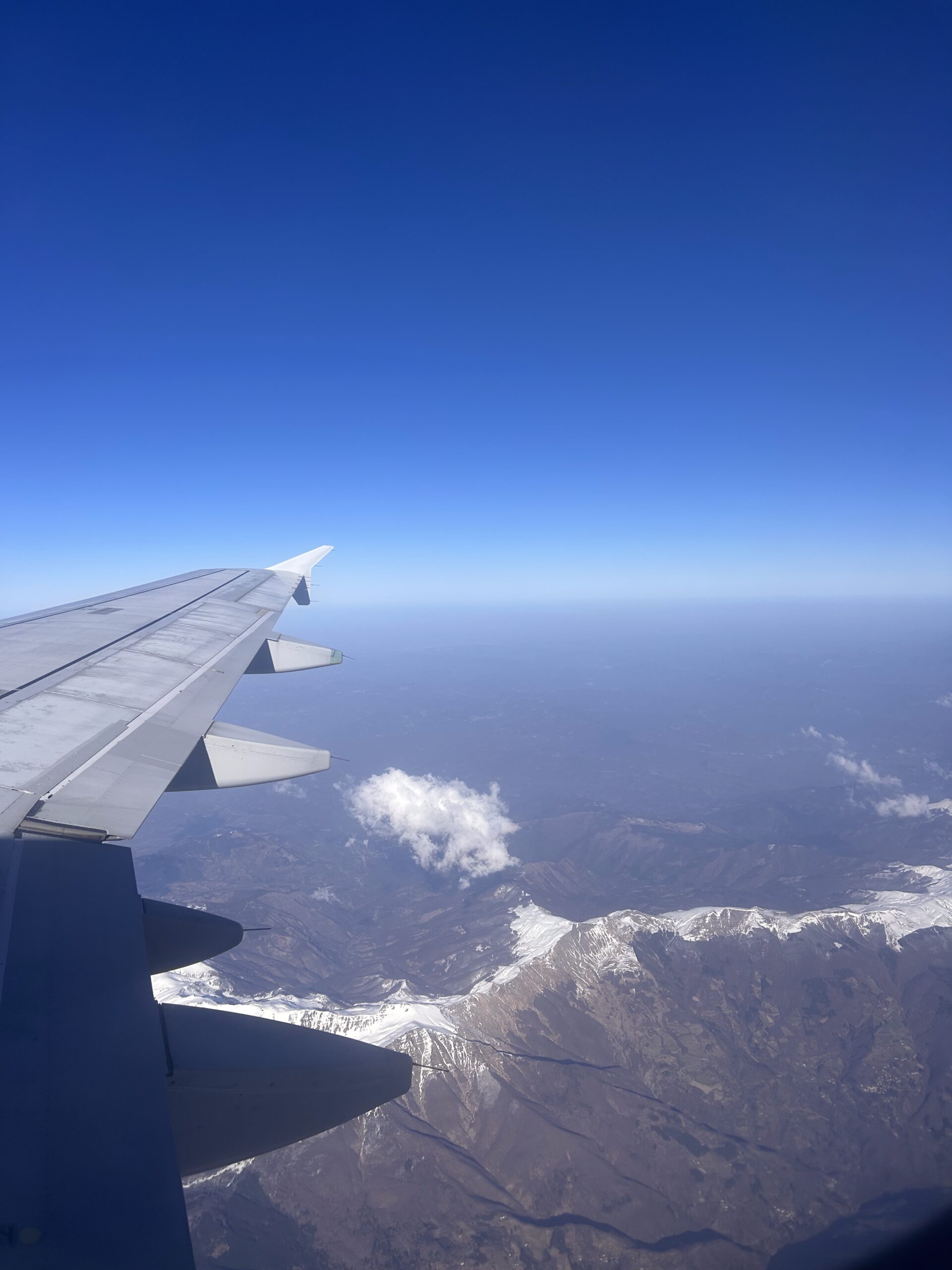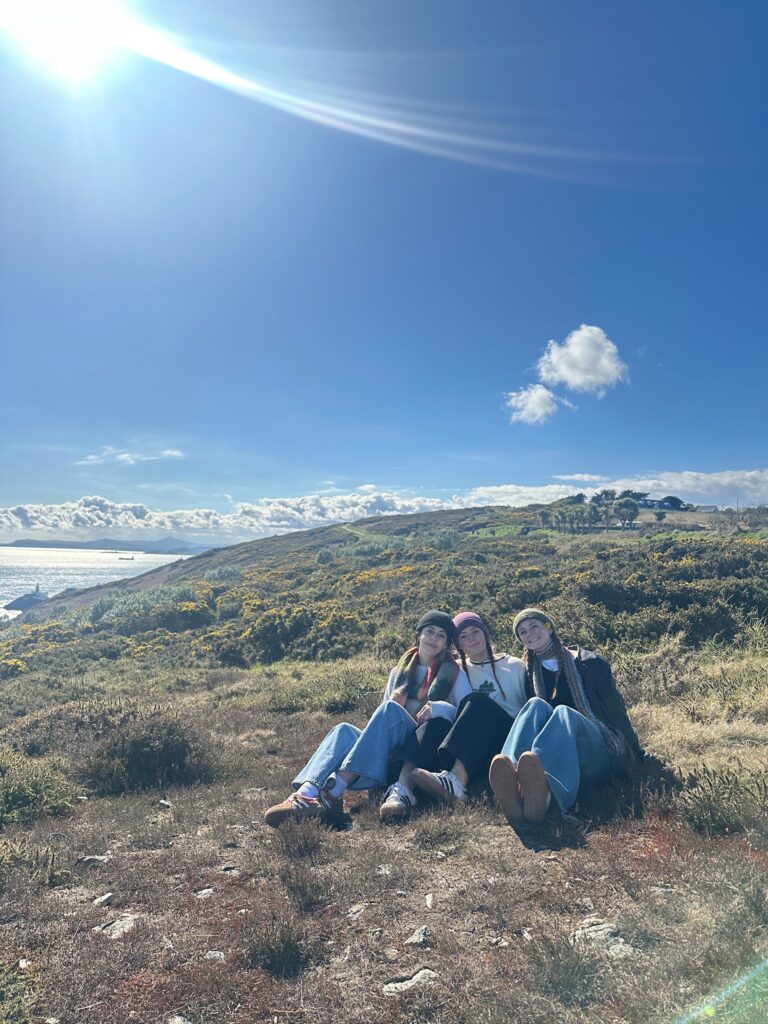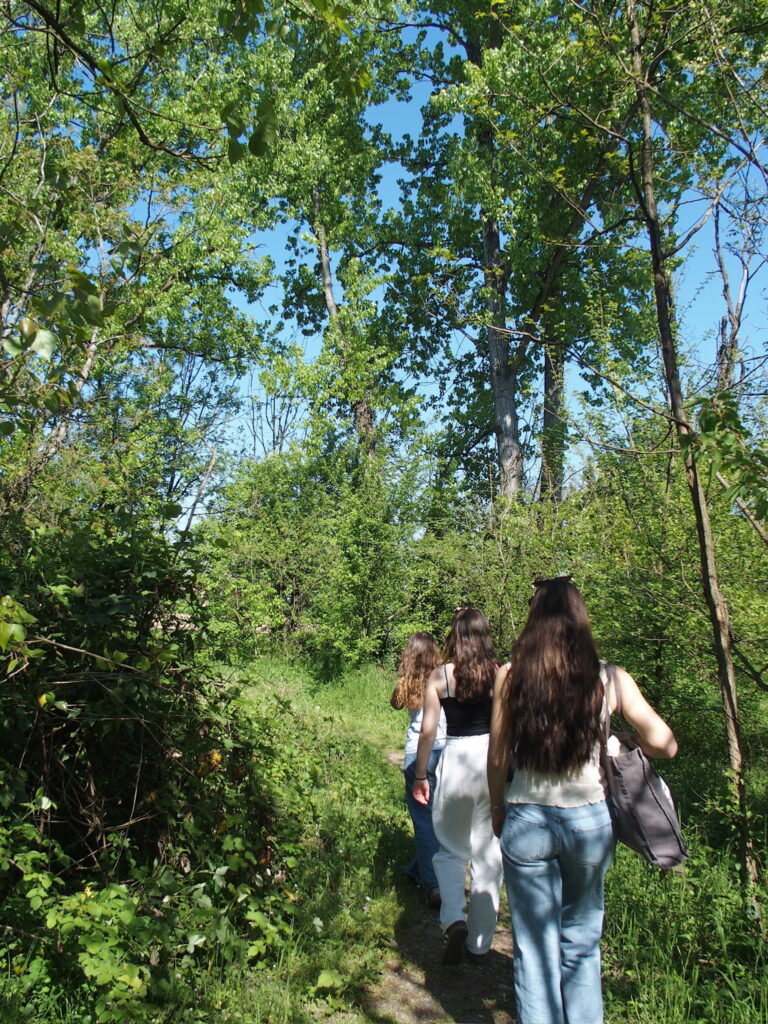Traveling as a Study Abroad Student on a Budget: Tips and Tricks
Nicole Skyer & Audrey Radick
Studying abroad in Florence, Italy, and traveling across Europe for four months has been one of the most exciting and transformative experiences of my life—but it didn’t take long to realize how quickly it can become financially overwhelming. The dream of exploring historic cities, vibrant cultures, and stunning landscapes often clashes with the reality of a student budget. But what I’ve learned along the way is that traveling luxuriously doesn’t always mean spending money. Sometimes, luxury looks like time to slow down, a unique perspective, or the kind of luck that puts you in the right place at the right time.

As students, we’re often told to expect the backpacker version of Europe: hostels, grocery store meals, and walking miles to avoid public transportation costs. And while we’ve definitely done all of that, along the way, we’ve found that luxury doesn’t have to be expensive. It can be the quiet beauty of a city at sunset or the pride of finding a hidden gem without breaking the bank. There have been days that felt truly extravagant without spending much at all, simply because we allowed ourselves to slow down and enjoy what was already around us.
Use Free Resources
One of the most helpful discoveries we made in Florence is that many museums offer free admission on the first Sunday of each month. Instead of spending €15 here and €20 there, we planned my Sundays around these openings and wandered through incredible places like the Uffizi and Accademia—completely free. We never felt like I was missing out by skipping the line on another day. In fact, we were proud to be experiencing such iconic spaces in a way that made sense for the student budget and lifestyle.
Let Nature Be Your Tour Guide
Some of our most luxurious experiences cost us absolutely nothing. In Switzerland, we spent an entire day hiking through the Alps. Every step felt like walking into a postcard. We picked trails with no entrance fee, packed sandwiches for lunch, and let the sound of cowbells and the wind guide us. At the summit, sitting on a rock with a view that stretched for miles, we felt more awe and peace than we could’ve ever found on a paid tour or in a fancy restaurant.
Pro Tip: Use apps like AllTrails or Komoot to find beginner-friendly hikes wherever you’re traveling.
Pick One Daily Indulgence
Instead of constantly worrying about every euro spent, we learned to build one affordable indulgence into our days. In Paris, that was a perfect €2 croissant and a coffee from a local boulangerie each morning. We’d take it to go, find a park bench near the Seine or in the Marais, and just watch the city come to life. It didn’t feel like skimping, in fact, it made us feel incredibly connected to the city.
Embrace Slow Travel Moments
Not every day needs a packed itinerary. One of the most peaceful, unexpected experiences happened in Porto, Portugal. With nothing on our schedule, we wandered down to the Douro River, found a quiet spot along the stone embankment, and just sat. Boats drifted by. Locals talked and laughed nearby. The sunlight hit the tiled buildings in just the right way. It didn’t cost a cent, but that afternoon became one of the most memorable parts of our trip. There’s a richness in being fully present, especially when you let go of the pressure to do and see everything.
Prioritize Experiences Over Things
When we started traveling, we felt the urge to (and did) buy souvenirs in every city. But we quickly realized that we didn’t want to carry extra things, we wanted to carry memories. So we began putting my money toward experiences instead: a cooking class in Florence, a museum pass in Austria, or a live concert in London. These are the moments we still talk about, long after the trip is over.
Eat Smart
Dining out can be one of the fastest ways to drain your travel budget. So, we made it a habit to shop at local grocery stores, prep simple meals, and picnic in beautiful places. In Amsterdam, we skipped the expensive canal cruise and instead grabbed a stroopwafel and a drink, found a spot by the water, and watched the boats full of people go by. Sometimes, we would stumble on a street musician or a small market and end up spending hours there. It felt indulgent not because it was expensive, but because we had the time and space to enjoy it.



Plan Ahead + Pack Right
Planning ahead helped us avoid a lot of unnecessary stress and spending. Booking train tickets early, using discount airlines, and checking out student travel deals makes a big difference. We always pack snacks, a refillable water bottle, a portable charger, and a good book. Being prepared keeps you flexible, and flexibility is key to making budget travel work.
Budget Travel Is Intentional Travel
Our time abroad has been more than just a trip, but rather a crash course in independence, problem solving, and how to make the most of what we have. We’ve learned that budgeting for travel isn’t about saying no to everything—it’s about choosing your “yes” moments with intention.
So no matter your budget, don’t be afraid to explore. The most meaningful moments are often the ones you didn’t plan—but were ready for when they came.
✍️ Thanks for reading!
To connect or chat more about study abroad life and budget travel tips:
Nicole Skyer
📍 Strategic Communication + Professional Writing Student | The Ohio State University
🔗 Connect with me on LinkedIn
Audrey Radick
📍 Strategic Communication + Music, Media and Enterprise + Women, Gender, and Sexuality Studies Student | The Ohio State University
🔗 Connect with me on Linkedin
